Progetto
siscol
introduction to the project
SISCOL aims to develop Sicilian circular economy
Two of the problems often found in Sicilian agricultural practices are the shortage of irrigation water and the disposal of waste such as agricultural production waste (straw, pruning clippings, manure, etc.). In addition, water shortage is often associated with the availability of water with unsuitable quality characteristics for the required use.
Therefore, the purpose of the SISCOL Project is to implement innovative management systems within the farms that are members of the G.O. (Operating Group). In particular, it aims to improve agricultural production from a qualitative and quantitative point of view through technological innovation based on computer communication and analysis and the use of modern equipment that upgrades agricultural waste and allows its reuse.
1. Water resources management
The implementation of the intelligent water management system based on computerized communication technologies (I.C.T.) aims at optimizing the use of water resources available for irrigation.
By implementing an intelligent water management system based on precision agriculture techniques, it will allow us the quali-quantitative efficiency of water demand for irrigation use that will allow the farmer a better and effective use of water resources. In fact, it will make it possible to provide the amount of water strictly necessary and the amount of nutrients useful for plant growth (fertigation).
The appropriate mixing of different water resources such as surface water, rainwater, well water (often characterized by high salinity) and a real-time monitoring system based on pH, conductivity and UV absorbance measurements will allow the use of irrigation water of suitable quality. This will help increase the availability of water resources, a factor of great importance during the occurrence of extreme drought events.
Technology used:
Thermal sensing drones
Soil moisture sensors
Drip irrigation systems
2. Agricultural waste management
The SISCOL Project also proposes an innovative agricultural waste valorization system. The proposed system involves a combination of shredders and composting systems. The shredders will produce wood chips from olive tree woody pruning residues and waste from oregano processing. The wood chips will be burned in a boiler and then reused for heat/energy production on the farm.
The composting systems will be designed and operated in order to obtain a compost with adequate macronutrient content and good microbial biodiversity. The mixture of substrates to be composted will consist of cattle manure to which straw and sawdust produced by shredding oregano processing waste will be added.
The proportions between the different fractions of the substrates in the mixture to be composted, the process parameters of composting (temperature, moisture, oxygen) will be optimized appropriately. The compost produced will be reused on the farm.G.O. member farms specialize in the cultivation of olives, cereals (wheat), medicinal herbs (oregano, thyme, sage, laurel, lavender, rosemary) and chili peppers. In addition, there are cattle farms.
Technology used:
Composting machine
Boiler
Bio-shredder
Processed products:
Olive tree pruning waste
Vineyard pruning waste
Fruit and vegetable scraps
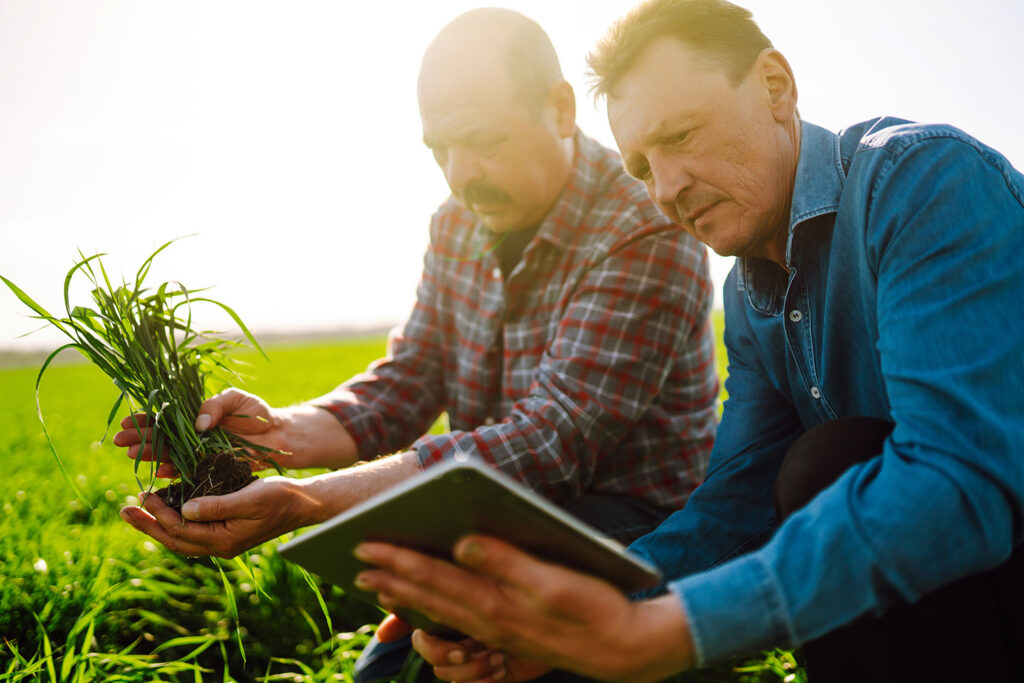
The goals of the project
The objective of the SISCOL Project is to improve the competitiveness of the farms belonging to the G.O. (Operating Group) through actions to modernize the agricultural practices implemented. In particular, through techniques proper to precision agriculture, the project aims to make optimal use of water resources in the area in order to improve the production of agricultural crops present. In addition, through the introduction of an environmentally sustainable system of managing agricultural production waste, an economic and environmental valorization of these materials is aimed at.
1A. Stimulate innovation, cooperation and development of the knowledge base in rural areas;
1B. Strengthen the links between agriculture, food production and forestry, on the one hand, and research and innovation, on the other, also with a view to improving environmental management and performance;
2. Improve the economic performance of all farms and encourage farm restructuring and modernization, particularly to increase market share and market orientation as well as diversification of activities;
3. Improve the competitiveness of primary producers by integrating them into the agri-food chain through quality schemes, value addition for agricultural products, promotion of products in local markets, short supply chains, producer associations and organizations, and interprofessional organizations
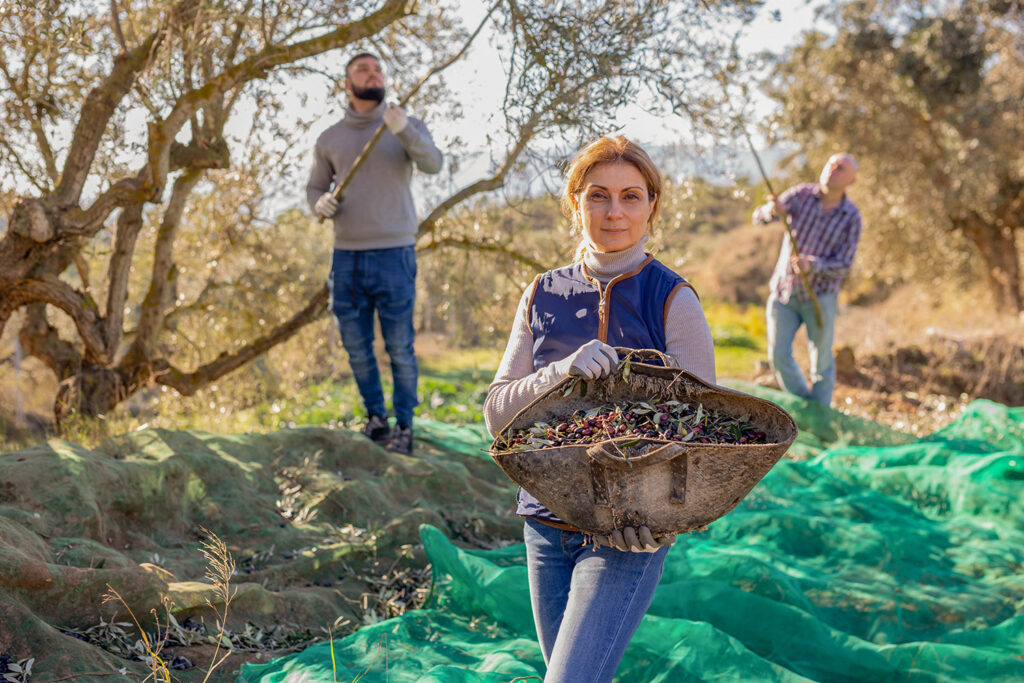
project results
The specific expected results can be summarized in the following points:
1. Optimization of inputs (water and nutrients), minimizing environmental impacts (waste, agricultural waste, greenhouse gas (GHG) emissions from agricultural soils;
2. Optimization of production efficiency and quality of chili and olives;
3. Reducing crop water stress and increasing water availability;
4. Restoration of chemical, physical and biological fertility of soils;
5. Reduction of farm costs.
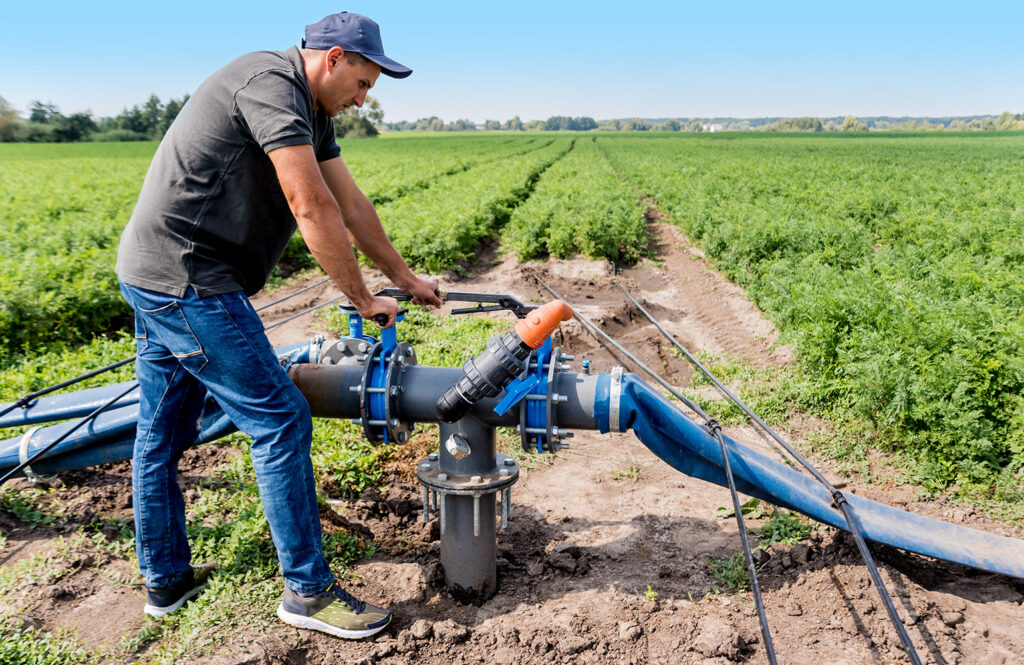
project innovation
G.O. member farms fall within the provincial territories of Palermo and Caltanissetta. These are rural territories where there is a strong dependence on the primary sector and where it is necessary to support the creation and development of extra-agricultural activities, in order to promote the socio-economic growth of the territories, counter depopulation and create new job opportunities. It appears necessary to improve the economic performance of present businesses by encouraging their restructuring and modernization.
Such actions can certainly contribute to improving the competitiveness of primary producers by better integrating them into the agri-food chain through quality schemes and to the creation of added value for local agricultural products resulting in an increase in non-agricultural activities. It appears necessary to encourage integration and cooperation among producers and increase the level of concentration of supply as well as encourage the creation of supply chains and the direct connection of agricultural enterprises with processing and markets.
The modernization to be pursued, will have to aim at the production of products obtained under quality systems, which will have to be supported by appropriate promotion and information actions in order to increase their marketing. In the territory subject to intervention, it is essential to encourage an eco-sustainable development that respects the various environmental compartments. It is indeed necessary to preserve, and in some cases improve, the quality of the soil and defend the territory from hydrogeological instability and surface erosion.
The agricultural sector exerts considerable qualitative-quantitative pressures on the water resource. Therefore, it is necessary to encourage actions that minimize the use of pesticides and the resulting runoff and leaching of these substances into surface and groundwater bodies while protecting their quality. It is also necessary to increase the efficiency of irrigation resource use in an area affected by drought events.
Another priority is to encourage the production and use of energy from renewable sources such as energy recovery from waste materials and residues from agricultural production. This approach positively impacts the environment through reduced emissions and has obvious cost-effectiveness. Virtuous agricultural waste management practices (composting) can help reduce CO2 emissions and sequester carbon in the soil.
Importance to make the best use of water resources
The proposed project aims to introduce innovative practices based on engineering methods within the agricultural activity of the farms constituting the G.O. In particular, in order to increase the efficiency of water resource use for irrigation purposes and thus maximize agricultural production, a decision support system based on I.C.T. technology will be developed that will guide the farmer in the optimal allocation of available water resources. In the development of such a decision support system, the practices of precision agriculture will be used, which is precisely a management strategy that makes use of modern instrumentation and is aimed at the execution of agronomic interventions taking into account the actual crop requirements and the biochemical and physical characteristics of the soil.
For this purpose, the use of drones will be used, which allow large expanses of crops to be inspected quickly and easily. From the detected images it will be possible to process specific vegetation indices organized into maps that will provide a complete and always up-to-date picture of the vegetative vigor of crops. In addition to this information, a system of soil moisture sensors installed on the ground will make it possible to identify areas of plantations most prone to water stress. Precision agriculture is a recently implemented management practice. It is very recent to carry out research projects that have focused on precision agriculture with particular reference to water management.
For example, the Citrus District of Sicily and Coca-Cola Italia have just launched, in collaboration with the Department of Civil Engineering and Architecture of the University of Catania, a research project that also involves with the collaboration of other foreign partners the implementation of precision agriculture in citrus cultivation. The innovation of this project is to apply the practices of precision agriculture in the cultivation of chili peppers, medicinal plants and olives in order to optimize their production both qualitatively and quantitatively. The experimental activities conducted throughout the duration of the project, coordinated by researchers from the University of Catania, will aim to evaluate the effective improvement of the production of the above-mentioned crops. Appropriate marketing and information actions will be implemented for the promotion of local products in national and international markets.
An environmentally sustainable model for managing agricultural production waste will also be proposed as part of the project. The proposed system will make use of a bio-shredder to produce wood chips from woody crop waste and composting systems for the valorization of plant residues. The wood chips produced will be reused on the farm for energy recovery in the form of heat, useful, for example, for drying chili peppers. Composting is a technology that is recently finding great application for the valorization of waste from agricultural activities. Several composting methods are applicable on a farm. The choice of the most appropriate method depends on several factors: amount of daily production of compostable substrates, quality of substrates, availability of space and equipment, composting time, and economic investment allocable to the activity.
The innovation of the project will consist in the selection of the suitable substrate mixture for the production of high quality compost using the vegetable waste available in the G.O. member farms such as manure, officinal herb waste, straw, fruit and vegetable waste, and wood waste. Process parameters such as amount of air to be insufflated, oxygen content, temperature, humidity and ripening time will be optimized during experiments by researchers from the University of Catania assisted by field technicians and consultants. The tests will be conducted under different climatic conditions during different seasons of the year. Agricultural waste from the different farms will also be managed in a single supply chain in order to optimize waste management from an economic point of view. These actions will help reduce CO2 emissions.
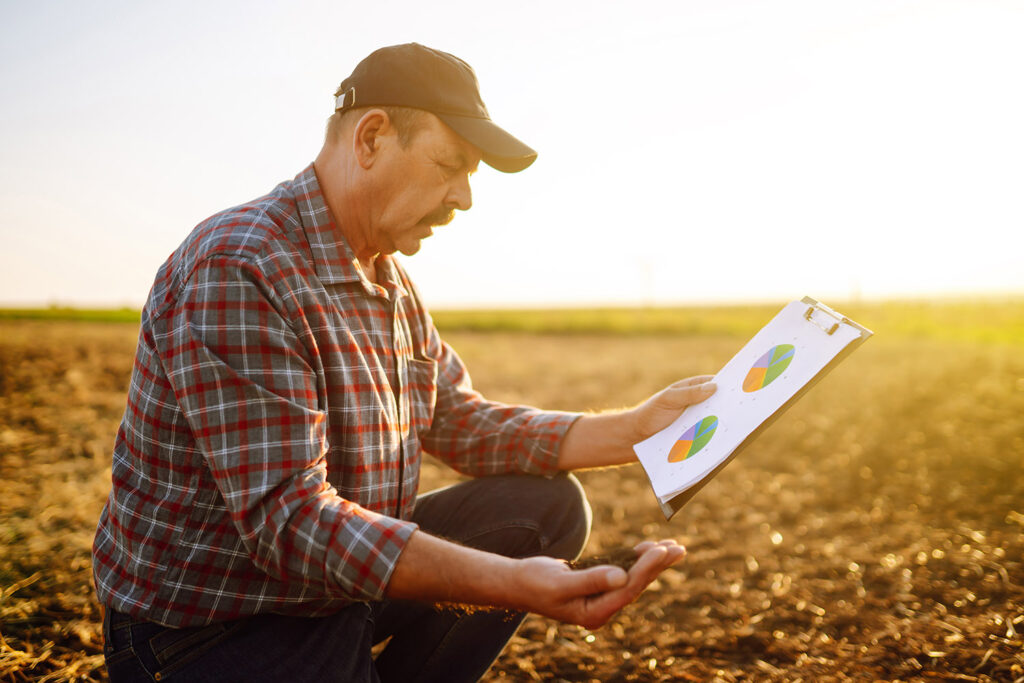
project sustainability
The overall objective of the project is to introduce innovative technical-productive methods and operational management systems in the G.O. member farms, which aim at a qualitative and quantitative increase in agricultural production and at the same time are eco-sustainable and produce economic and environmental valorization of agricultural waste. The innovations to be introduced are in line with the resolution of the needs of the RDP Sicily identified in the context analysis.
In fact, the introduction of Precision Agriculture aims to increase agricultural production on partner farms and allows for continuous quality control of production. This contributes to improved traceability of production by promoting identification with the land. The introduction of engineering and computerized methods in agriculture, such as precision farming and rational waste management, encourages the introduction of new professionals in the sector with advisory tasks and with engineering/informatics skills.
The project proposes cooperation between farms in the management of production waste in order to reduce costs and achieve maximum benefits. Cooperation among several farms will make the implementation of precision agriculture economically viable even on small and medium farms . Appropriate marketing actions will be undertaken through partner action in order to encourage direct linkage of farms with processing and markets. Appropriate promotion and information actions will encourage membership in quality schemes and the promotion and information of quality products in markets.
Precision agriculture is distinguished by its ability to suggest agronomic interventions that take into account actual crop needs and the biochemical and physical characteristics of the soil. This helps to limit fertilizer use and rationalize irrigation water use. Such actions help improve soil quality and defend the land from hydrogeological disruption and surface erosion as well as increase the efficiency of irrigation resource use and protect the quality of surface and groundwater resources.
Through wood waste bio-shredder, the production and use of energy from renewable sources is encouraged. Specifically, the wood chips produced will be used to produce thermal energy on the farm. The production of high-quality compost also helps reduce CO2 emissions and “sequester” carbon in the soil, replaces the use of synthetic fertilizers, and improves soil microbial biodiversity.
The strategy of precision farming
The innovations to be introduced aim at changing agricultural practices and implementing a new farm organization for waste management. As previously discussed, precision agriculture is a management strategy that makes use of modern instrumentation and is aimed at carrying out agronomic interventions taking into account the actual crop requirements and the biochemical and physical characteristics of the soil.
Precision agriculture makes use of ICT technology, such as drones, sensors, and computer tools, which will provide continuously updated information on the vegetative vigor of plantations, irrigation and agronomic needs in general. Water quality will be continuously monitored with innovative tools in real time. This aims to introduce engineering management practices in agriculture and the introduction of new professionals with advisory tasks. The aim is to maximize crop production and quality.
The project also proposes an integrated, shared system among partner companies for managing agricultural waste. This collaboration will allow for the best possible mixture of substrates to produce the highest quality compost while reducing costs and environmental impact. The use of the chipper will promote on-farm energy recovery. Specific information actions will be implemented to promote the improved quality of agricultural products.
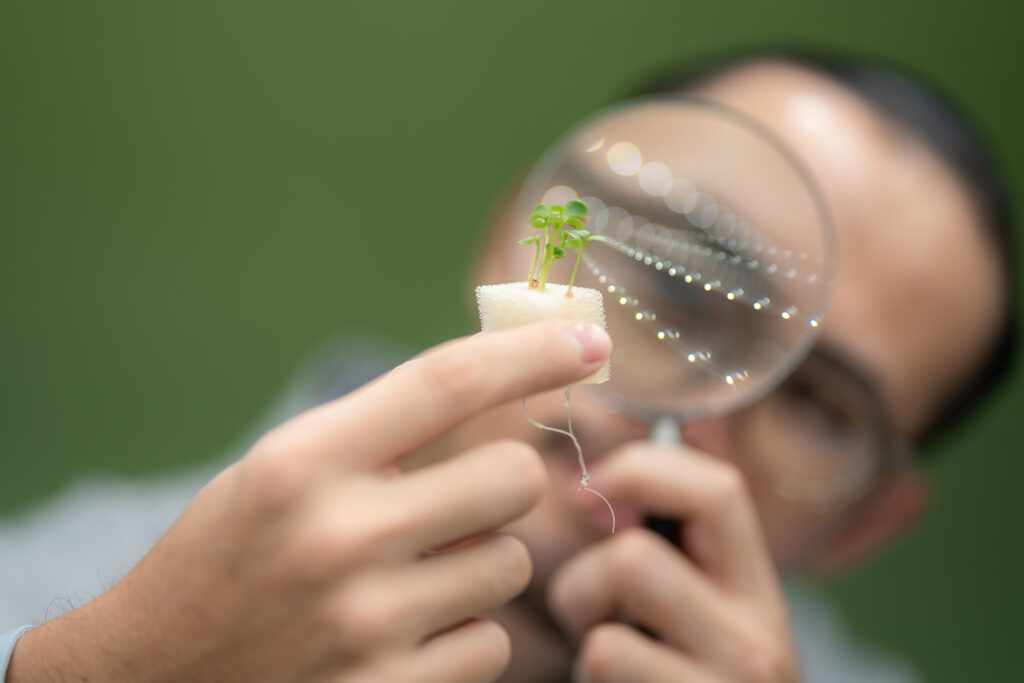
PROJECT RESEARCH
Researchers from the University of Catania will play a crucial role in introducing innovation to the companies involved in the partnership. The University of Catania will be responsible for overseeing the installation and testing of the ICT system for Precision Agriculture. The entire agricultural area identified and all crops present will be covered by the drone flight. The data collected will be useful for assessing all agronomic needs. Output data such as maps and indices will be properly managed through software and processed in an understandable form to interface with farm use.
Throughout the project, companies will be supported, by professionals and researchers from the University of Catania in the management and use of this technology. Several operational meetings (monthly) and demonstration trials will be carried out for this purpose, as further detailed in the attached dissemination plan. The data processed by the ICT system will also be periodically validated by field or laboratory measurements, thanks to the cooperation of the University and specialized technicians identified by the G.O. partners.
The effectiveness of using the technology will also be evaluated in terms of increasing the quantity and quality of agricultural production. Analysis of water quality (pH, salinity) used for irrigation will be periodically carried out by the University of Catania. Innovative monitoring parameters based on spectroscopic measurements and easy to perform will be used for quality control of water resources to be used for irrigation.
The collection system of agricultural waste from the different farms will be coordinated by the identified technicians and the University of Catania, as well as the implementation of composting operations and production of wood chips. Several trials of an experimental nature will be carried out to choose the best available substrate mixture in order to obtain high quality compost. Process parameters such as temperature, moisture and oxygen will be appropriately optimized during the experimental trials. These trials will be carried out in collaboration between the University, specialized external consultants and G.O. companies.
project's partners
The SISCOL Project is financed by the F.E.A.S.R. (European Agricultural Fund for Rural Development) fund and the Sicilian Region and sub-measure 16.1 of the RDP Sicily 2014-2022.
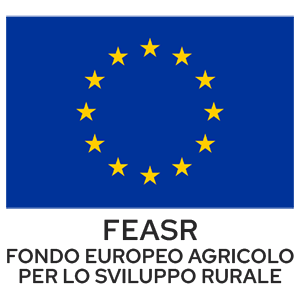
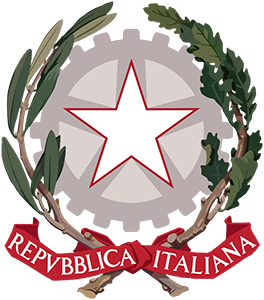
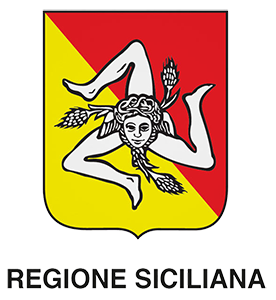
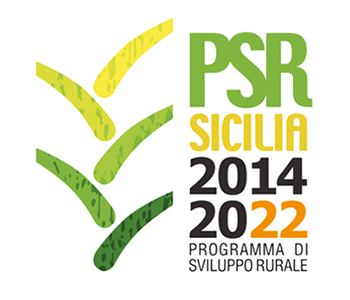
Farm enterprises partners
Research partners
University of Catania
Active participation in all phases that characterize the project. Special attention will be paid to technology implementation and field data collection and analysis. Will provide general supervision of the project and support agricultural operators in the implementation of innovative technologies.
Address:
Via Castelnuovo 227 Resuttano 93010 CL
Mobile:
+39 320 6443 902
+39 331 1023 301
E-mail:
info@siscol.eu
Tutte le foto e i testi del sito www.siscol.eu sono coperti da copyright – Ogni sua riproduzione parziale o totale è vietata – All Rights Reserved – copyright 2023 – Web site designed by DAVCO.